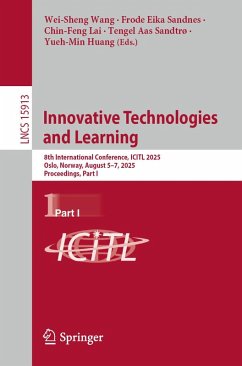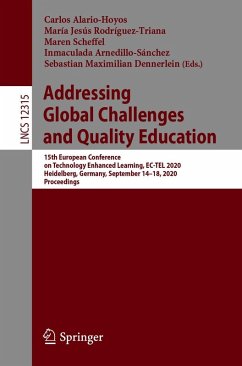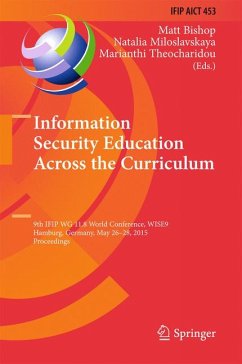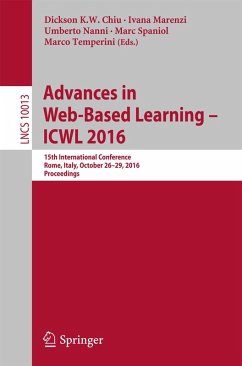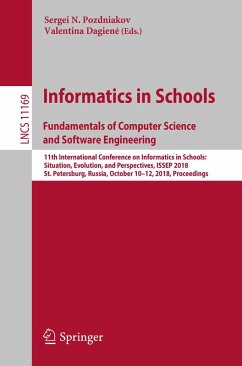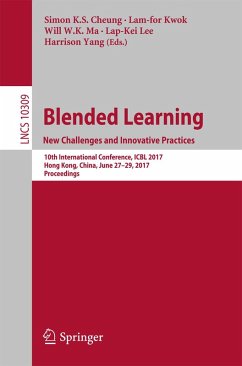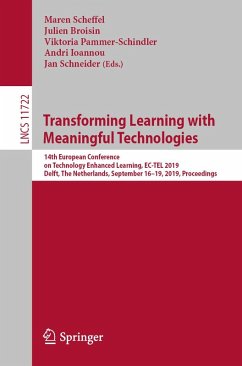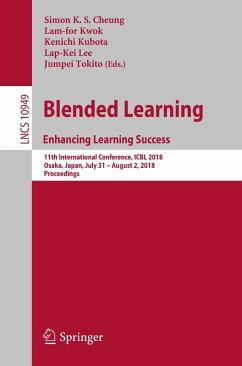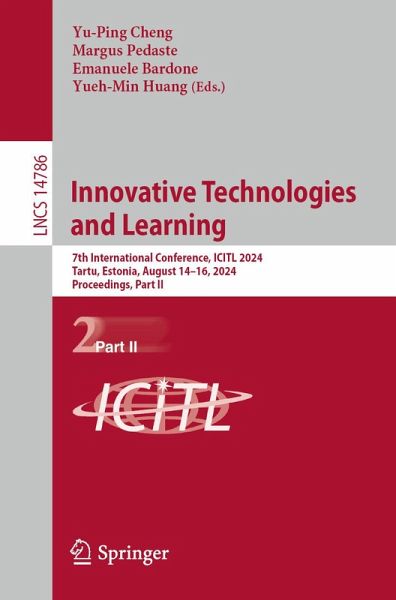
Innovative Technologies and Learning (eBook, PDF)
7th International Conference, ICITL 2024, Tartu, Estonia, August 14-16, 2024, Proceedings, Part II
Redaktion: Cheng, Yu-Ping; Huang, Yueh-Min; Bardone, Emanuele; Pedaste, Margus
Versandkostenfrei!
Sofort per Download lieferbar
52,95 €
inkl. MwSt.
Weitere Ausgaben:

PAYBACK Punkte
26 °P sammeln!
The two-volume set LNCS 14785 and 14786 constitutes the refereed conference proceedings of the 7th International Conference on Innovative Technologies and Learning, ICITL 2024, Tartu, Estonia, during August 14 -16, 2024.The 60 full papers included in this book were carefully reviewed and selected from 131 submissions. They were organized in topical sections as follows:Part One : Artificial Intelligence in Education; Computational Thinking in Education; Design and Framework of Learning Systems and Pedagogies to Innovative Technologies and Learning.Part Two : STEM/STEAM Education; VR/AR/MR/XR in...
The two-volume set LNCS 14785 and 14786 constitutes the refereed conference proceedings of the 7th International Conference on Innovative Technologies and Learning, ICITL 2024, Tartu, Estonia, during August 14 -16, 2024.
The 60 full papers included in this book were carefully reviewed and selected from 131 submissions. They were organized in topical sections as follows:
Part One : Artificial Intelligence in Education; Computational Thinking in Education; Design and Framework of Learning Systems and Pedagogies to Innovative Technologies and Learning.
Part Two : STEM/STEAM Education; VR/AR/MR/XR in Education; and Application and Design of Generative Artificial Intelligence in Education.
The 60 full papers included in this book were carefully reviewed and selected from 131 submissions. They were organized in topical sections as follows:
Part One : Artificial Intelligence in Education; Computational Thinking in Education; Design and Framework of Learning Systems and Pedagogies to Innovative Technologies and Learning.
Part Two : STEM/STEAM Education; VR/AR/MR/XR in Education; and Application and Design of Generative Artificial Intelligence in Education.
Dieser Download kann aus rechtlichen Gründen nur mit Rechnungsadresse in A, B, BG, CY, CZ, D, DK, EW, E, FIN, F, GR, HR, H, IRL, I, LT, L, LR, M, NL, PL, P, R, S, SLO, SK ausgeliefert werden.



